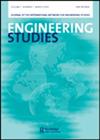Gender, Passion, and ‘Sticky’ Technology in a Voluntaristically-Organized Technology Makerspace
IF 1.3
3区 工程技术
Q2 EDUCATION, SCIENTIFIC DISCIPLINES
引用次数: 1
Abstract
As ‘open’ and supposedly inclusive informal learning settings that participants visit out of interest and passion, there has been hope that makerspaces will democratize technology and challenge traditional gender patterns in engineering education. Passion for technology has, however, also been shown to be deeply intertwined with the masculinization of engineering. This article explores how this tension manifests among engineering students and other makers at an ‘open’ voluntaristically-organized technology makerspace located at the campus of a Swedish university of technology. It draws on a post-structural understanding of gender and Sara Ahmed’s queer-phenomenological conceptualization of emotions as ‘orienting devices’. Based on ethnographic fieldwork and interviews with makers, we show how passion for technology is articulated as a particularly absorbing emotion that underpins a playful approach to technology and a framing of makers as single-minded and asocial. We demonstrate how passion for technology thereby becomes a homosocial ‘glue’ that makes technology ‘sticky’ for only a select group of techno-passionate men. We conclude that this undermines the potential for ‘making’ to democratize technology and puts into question the degree to which interest-driven, voluntaristic and ‘authentic’ settings for engaging with technology can contribute to pluralizing engineering.自愿组织的技术制造者空间中的性别、激情和“粘性”技术
作为参与者出于兴趣和激情而参观的“开放”且据称具有包容性的非正式学习环境,makerspaces有望使技术民主化,并挑战工程教育中的传统性别模式。然而,对技术的热情也被证明与工程的男性化深深交织在一起。本文探讨了这种紧张关系是如何在瑞典一所理工大学校园内一个“开放”的、自愿组织的技术制造者空间中,在工程系学生和其他制造者中表现出来的。它借鉴了对性别的后结构理解,以及Sara Ahmed将情绪作为“定向装置”的酷儿现象学概念化。基于人种学实地调查和对制造商的采访,我们展示了对技术的热情是如何被表达为一种特别吸引人的情感的,这种情感支撑着对技术的戏谑态度,以及将制造商视为专一和反社会的框架。我们展示了对技术的热情是如何成为同性恋的“粘合剂”,使技术只对一部分技术热情的男性“粘性”。我们得出的结论是,这破坏了“制造”技术民主化的潜力,并使人们对利益驱动、自愿和“真实”的技术参与环境在多大程度上有助于工程民主化产生了疑问。
本文章由计算机程序翻译,如有差异,请以英文原文为准。
求助全文
约1分钟内获得全文
求助全文
来源期刊

Engineering Studies
ENGINEERING, MULTIDISCIPLINARY-HISTORY & PHILOSOPHY OF SCIENCE
CiteScore
3.60
自引率
17.60%
发文量
12
审稿时长
>12 weeks
期刊介绍:
Engineering Studies is an interdisciplinary, international journal devoted to the scholarly study of engineers and engineering. Its mission is threefold:
1. to advance critical analysis in historical, social, cultural, political, philosophical, rhetorical, and organizational studies of engineers and engineering;
2. to help build and serve diverse communities of researchers interested in engineering studies;
3. to link scholarly work in engineering studies with broader discussions and debates about engineering education, research, practice, policy, and representation.
The editors of Engineering Studies are interested in papers that consider the following questions:
• How does this paper enhance critical understanding of engineers or engineering?
• What are the relationships among the technical and nontechnical dimensions of engineering practices, and how do these relationships change over time and from place to place?
 求助内容:
求助内容: 应助结果提醒方式:
应助结果提醒方式:


